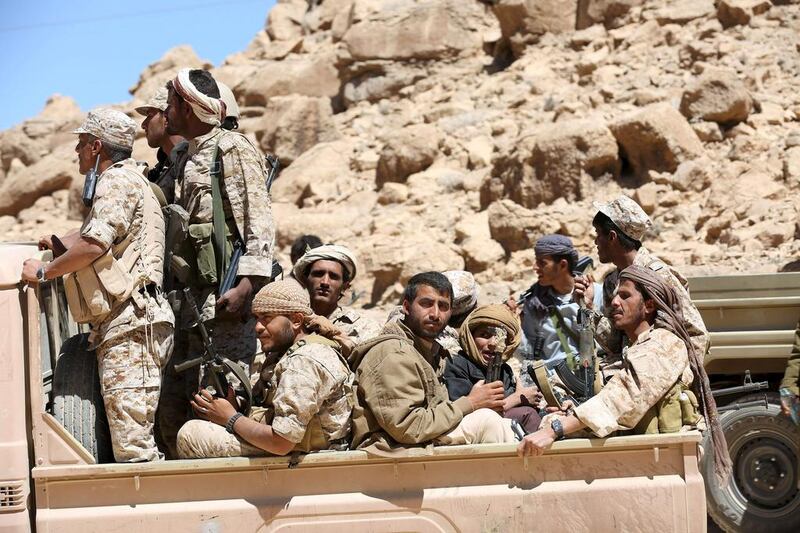Ayman Al Zawahiri, Al Qaeda’s leader, is back in the news, having released a recording of a speech in which he urges Jabhat Al Nusra, its affiliate in Syria, to form its own state there. Such a development would mark the first time Al Qaeda has built a functioning regime – but not the first time they have tried.
One such attempt was in Yemen’s port city of Mukalla – and it was the UAE and Yemeni troops loyal to the Yemeni president who destroyed it.
The UAE is in the midst of a massive aid operation to Mukalla, Yemen’s fifth-largest city. Seventeen ships laden with aid are on the way, as well as a further 20 tonnes of medical supplies. The country is urgently seeking to get the city back to normal, after months of occupation by Al Qaeda in the Arabian Peninsula (Aqap).
Al Qaeda has been in the country for years and has been consistently targeted by Yemen’s government and the US military. But after the Houthis destabilised the country, it created an opening for the terrorist group, and last April they seized Mukalla.
This was a real boon to the group, which found itself flush with cash – perhaps as much as US$2 million (Dh7.3m) a day was collected from taxes and smuggling. That kind of money, as well as the security of a city in which to train, can lead to devastating attacks – as the world has seen with ISIL in Syria.
Those months of Aqap’s occupation ended less than three weeks ago, after the UAE and Yemen coordinated an air and ground attack against the group, breaking through its defences and taking back the city in a matter of days.
The loss of Mukalla is a serious blow to Al Qaeda, which seems to have sought to emulate the success of ISIL. But it is also an important step in making sure the south of Yemen is stable, once the remnants of the Houthi rebels have been removed.
What happens to the rest of Yemen is now up to the Houthis. After two days when it looked like the group might withdraw from peace talks in Kuwait, they rejoined face-to-face talks on Monday. But they are still proving unreliable. As Yemen’s foreign minister noted on Twitter, the Houthis have still offered nothing concrete. The group must walk the path to peace – because the Saudi-led coalition is extremely serious about stabilising its neighbour, as the battle against Al Qaeda in Mukalla shows.





